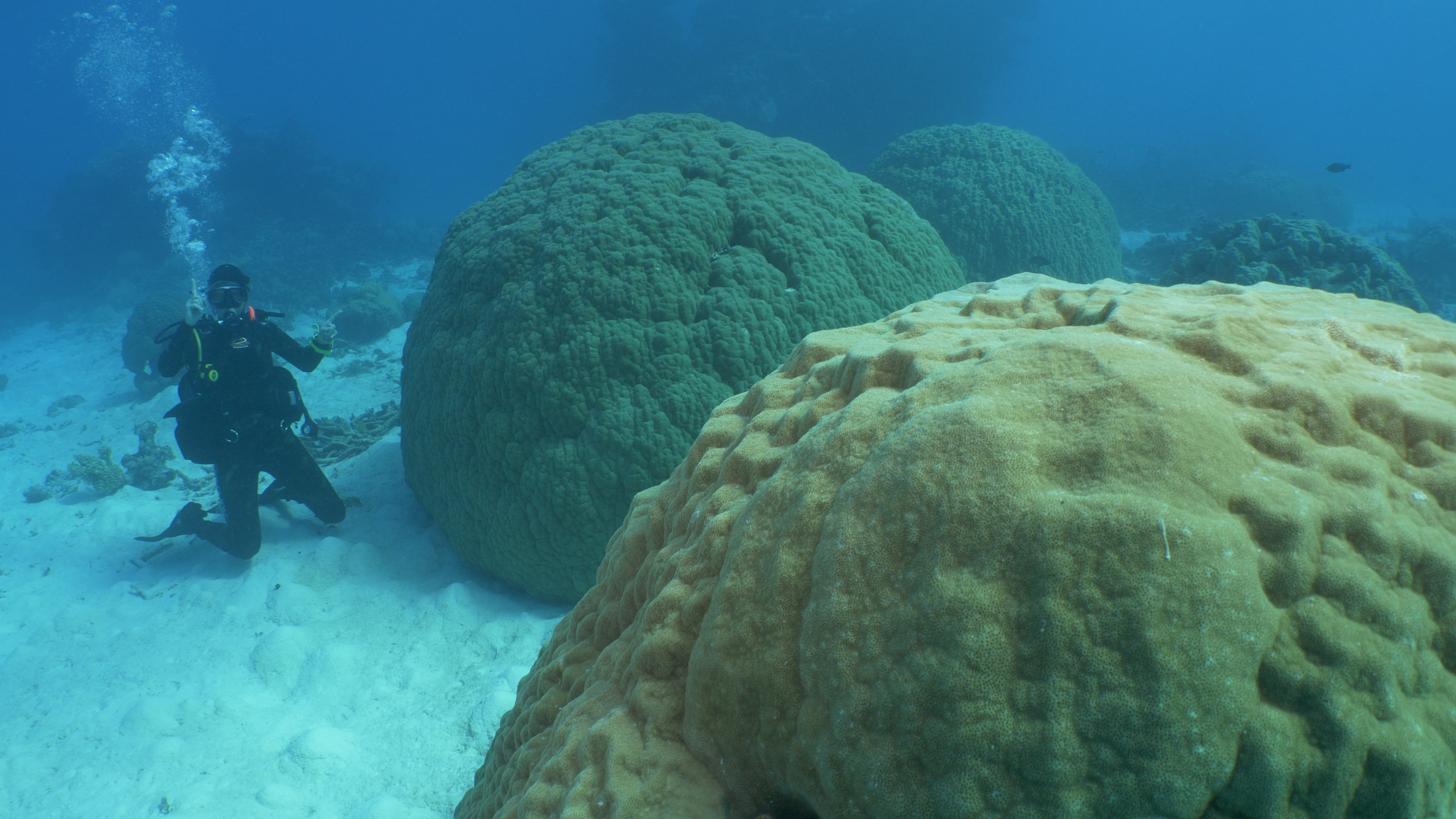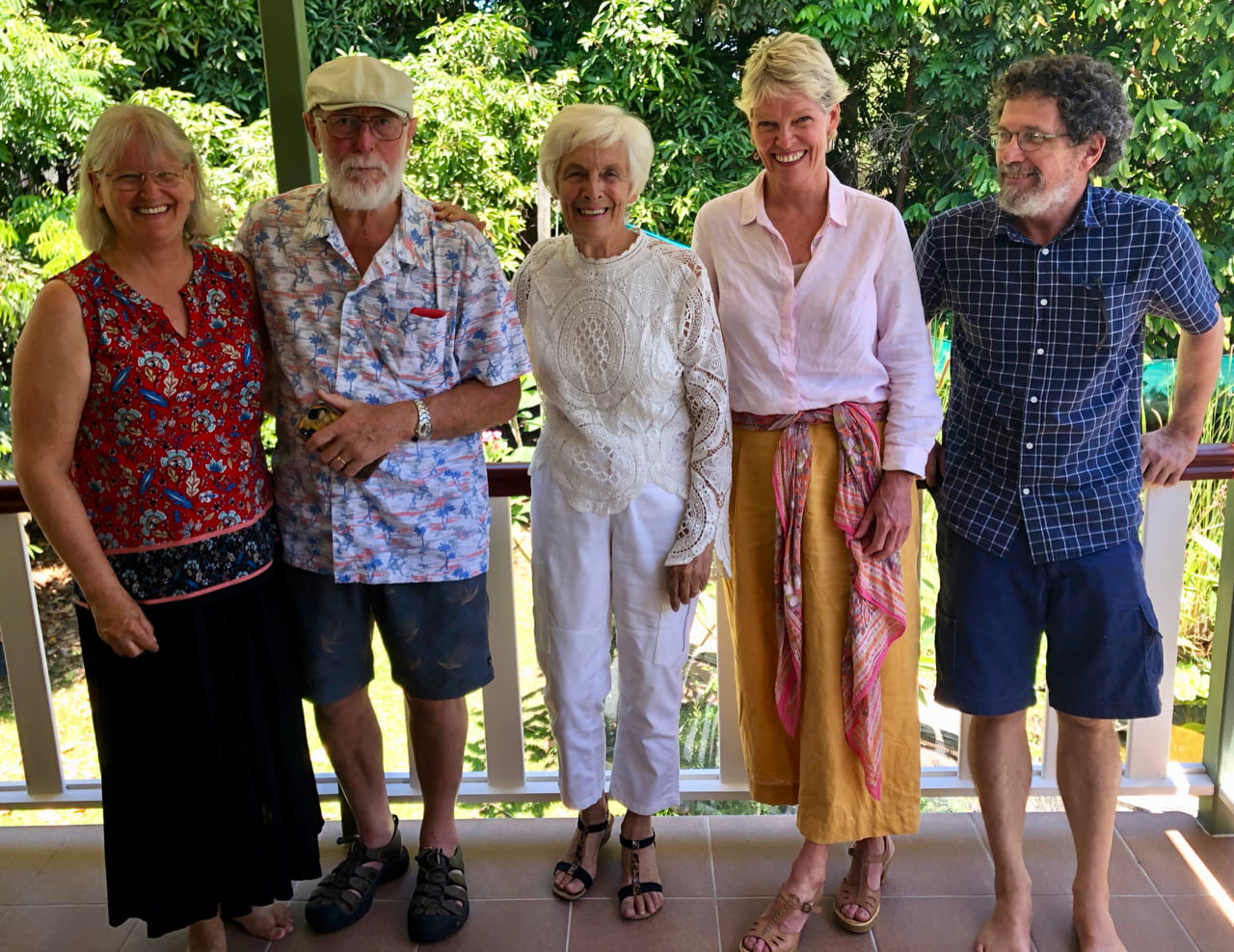I am so privileged to have written the introduction to Peter Ridd’s new book, ‘Reef Heresy?’. In it I explain that it is of great concern to both Peter, and myself, that those who claim the Great Barrier Reef to be in terminal decline are so unwilling to engage in any form of debate.
Sometimes the quickest way to the truth is through argument, by which I mean disagreement between two or more people with each side given opportunity to present their case and their perspective.
The word ‘heresy’, which is the title of Peter’s book, means ‘opinion profoundly at odds with what is generally accepted’. The heresy is that Peter is not committed to the right political dogma. It is not that he is wrong.
It is interesting that the ‘other side’ won’t debate. They would prefer everyone just believed that the reef is in terminal decline, and that we have catastrophic global warming. And how profoundly sad would that be, if it were true!
The establishment, by which I mean the science managers at James Cook University and the Australian Institute of Marine Science (AIMS), know that it might not be quite so straightforward, and that there could be some issues with some of the science. But, in general, they are convinced that they are right – or at least on the side of right, even if that means being ‘left’. (Ha ha.) They certainly don’t want to have to get into the detail – or have to keep coring the massive old Porites corals from which an overall coral growth rate for the Great Barrier Reef used to be calculated.
Some of this is explained in a discussion I had with Peter when we were last together in Townsville – a discussion hosted by John Roskam and that included some 400 members of the Institute of Public Affairs (IPA) via Zoom.
In this discussion, and more generally, I suggest we should all (both sides) be less quick to lecture and more interested in asking questions.
Peter Ridd suggests towards the end of his book (page 184) that asking questions in science could be made more legitimate through the establishment of explicit ‘Red Teams’ at organisations like AIMS. Yale University professor, Irving Janis, was detailing the inherent problems with working towards a consensus – and labelled this Group Think – back in the 1950s. Professor Janis explained in his important book by the same name, how this will inevitably generate systematic errors. The conclusion of that long book is that it is critical groups encourage scepticism in order to find the possible errors in their favourite theory or plan. I would have thought this to be a no-brainer in a civilization as sophisticated as our own, and one in which being able to forecast the weather day-to-day, month-to-month, and year-to-year is so important especially for the proper management of water infrastructure and water allocations for hydro-electricity as well as growing food crops.
Despite a plethora of history and data suggesting that ideas should always be tested, we live during a time when it is so unfashionable to ask the hard questions. John Roskam ends the YouTube discussion quoting from my new book ‘Climate Change: The Facts 2020’: It is so much better to have questions that cannot be answered, than to live and do science according to answers that cannot be questioned.
Here are a few questions I have, from flipping through the page of Peter’s new book:
1. When was the last major event that caused catastrophic global climate disruption? (see page 200 of ‘Reef Heresy?’)
2. What does Peter think is the second most important environmental issue in Australia? (see page 201 of ‘Reef Heresy?’)
3. Which are the two sources of ‘new nitrogen’ into the Great Barrier Reef? (see page 84 of ‘Reef Heresy?’)
4. When have major outbreaks of Crown-of-Thorn starfish (COTS) occurred on the Great Barrier Reef? (see page 35 of ‘Reef Heresy?’)
5. When did AIMS last publish a Great Barrier Reef average coral growth rate? (see page 7 of ‘Reef Heresy?’)

****
The feature image at the very top of this blog post is of Cheryl Ridd, Bill Lindquist, Anne Carter, me and Peter (left to right) on the back verandah in Townsville, one Sunday, just a couple of weeks ago.


 Jennifer Marohasy BSc PhD is a critical thinker with expertise in the scientific method.
Jennifer Marohasy BSc PhD is a critical thinker with expertise in the scientific method.

“If it disagrees with experiment, it’s wrong. In that simple statement is the key to science”, so said, Richard Feynman.
I watched the whole interview. It was nice to see the references to Bob Carter and to the Holocene Climate Optimum – both have given me a lot of confidence that there is more to climate change than CO2.
Also, I was glad to see the question about doing your own porite coring. I’ve collected some cores from trees. While trees are very different from corals, the tree corers were Swiss made tools with impressive price tags.
Still, it seems to me that coring a Porite shouldn’t be all that expensive, except for the actual bit. If that could be mounted on steel pipe, the pipe at least should pretty cheap.
It would be a challenge to drill with it since people are so buoyant, but I can think of ways.
Might be good if people first define ‘Science’.
1. Observational science:
Eg. Hooke’s Law. F = kx. Tests can be undertaken by 10,000 scientists. All will get the same result. 100% certainty.
2. Concensus science:
(Particularly applicable in time-related fields)
2a. Relatively short time-period science – eg. ‘Corona virus research’.
2b. Relatively long time-period science – eg. ‘Barrier reef research’ and ‘Climate related research’ – with findings typically “97% of scientists agree”.
(1. Even if that 97% is true, is it interesting the level of vitriolic insults thrown at the other 3% of scientists. 2. Much of this consensus science results in gloom and doom predictions – usually the outcome of computer modelling).
2c. Extremely long time-period science – eg. origin / exhaustion of our sun.
Concensus science will ALWAYS use probabilities as the measure of its outcomes. Consensus science CAN NOT provide 100% certainty.
Consensus science has many parallels with politics and democracy, and ultimately 2c becomes more theological.
A concern of mine is that Australia could shut down its entire economy – resulting in zero impact on the world’s climate. Heavily-polluting China and others, simply power on.
>”It is interesting that the ‘other side’ won’t debate”
This has been *the* most effective tactic used by the consensus pushers. Peter Ridd has courageously challenged exactly this. That his GoFundMe request worked so well and so quickly says, amongst other things, that a large section of the public also dislike the no-debate stance – and dislike it with great intensity.
That point is not lost on the consensus pushers. It has discombobulated them. Let us hope that the High Court agrees to hear Peter’s case.
Many people use Wikipedia as their go-to source of information.
Most people do not know, Wikipedia mirrors the Left-leaning of its majority and dominating-editors.
The Wikipedia article devoted to the ‘Environmental threats to the Great Barrier Reef’ is a case-in-point.
The linked article below highlights the seriousness of this Wikipedia distortion.
https://www.breitbart.com/tech/2020/12/17/rep-ilhan-omars-wikipedia-page-scrubbed-by-activist-editors/
‘Bad science isn’t a victimless crime’
Peter Ridd
https://quadrant.org.au/opinion/book-excerpt/2020/12/bad-science-isnt-a-victimless-crime/
Too often the Left does not need to discuss / debate / accept anything other their own position.
Too often their responses take the form of personal attacks.
As an example, prior to the Marriage Postal Plebisite – all four panelists on ‘our taxpayer funded, ABC Insiders’ program applauded and cheered Tim Minchin singing, ‘I still call Australia homophobic’. (video on YouTube)
That absoluting insulting song apparently represents the Left’s view of 4.8 million Australians.
Thank you Jennifer and Peter for your IPA “in Conservation” pod cast, it was an enlightenment which demonstrated todays disregard for open thought. As a young primary student, Mr Raizbech, a teacher and returned serviceman who had been a bank teller prior to his war service, provided this advice. “To gain knowledge you must first listen, you should question, and thirdly you should share opinion with an open mind.” Very little of this today unfortunately.
So much thanks to Benny (GWPF), Mark (Climate Depot) and Charles (WUWT) for reposting …
https://www.thegwpf.com/reef-heresy-and-the-importance-of-asking-questions/
https://www.climatedepot.com/2020/12/22/great-barrier-reef-heresy-and-the-importance-of-asking-questions/
https://wattsupwiththat.com/2020/12/20/reef-heresy-and-the-importance-of-asking-questions/
And some of the comments at WUWT are always so good. I’m copying one here:
“Until I watched this video I hadn’t realised what Peter Ridd meant when he talked about quality control etc, now I understand better what he is saying and realise it is very similar to the main message I am trying to get across. To my mind this has got to be the number one priority for us all, we all need to understand, discuss and be trying to address this issue urgently:
“I spent my career as an engineer in product development. I’m seeing two kinds of checking applied in many areas of engineering that I think must both be present to avoid dangerous mistakes. From what I can make out both are absent in many areas of science including climate: 1) A system of learning from mistakes and implementing procedures, independent audit, certification, e.g. as we do in aviation and aircrash investigations. 2) Supplier/customer interactions where the customer needs to be very careful or sceptical it will do what it says on the tin, usually making sure 1, above is applied plus doing their own checking.
“My suggestion to help get the message across is to get people to think what we do in other situations where we need the product but if the product fails we might have been better off without it. E.g. food hygiene certification, kite marks for household goods, the large system of procedures, independent audit, certification etc for aviation etc. I think aviation is a particularly good example of why we need such a system. I think if climate science has it wrong we are potentially in a very dangerous situation because we do not know what is really going on, may miss a very different weather/climate disaster(s), fail to fix real problems, waste most valuable time and resources fixing non problems.
“I think governments and scientific institutions urgently need to realise the importance of these ways of working and checking and be reminded that they already apply them for other areas so why not climate science etc, and urgently need to make the necessary changes; learning lessons from mistakes, procedures, independent audit, certification, supplier/customer checking, not put so much faith in the apparent consensus of approved experts, peer reviewed papers system, precautionary principle. And of course we must be encouraged to question. Ends.
Hi JenThanks for staying true to the facts this past year. Finding and thinking about the facts there in the GBR is an excellent ‘scientific calling’. And clearly you are getting a lot of fun & joy out of it all as well.
A Win Win for al of us !